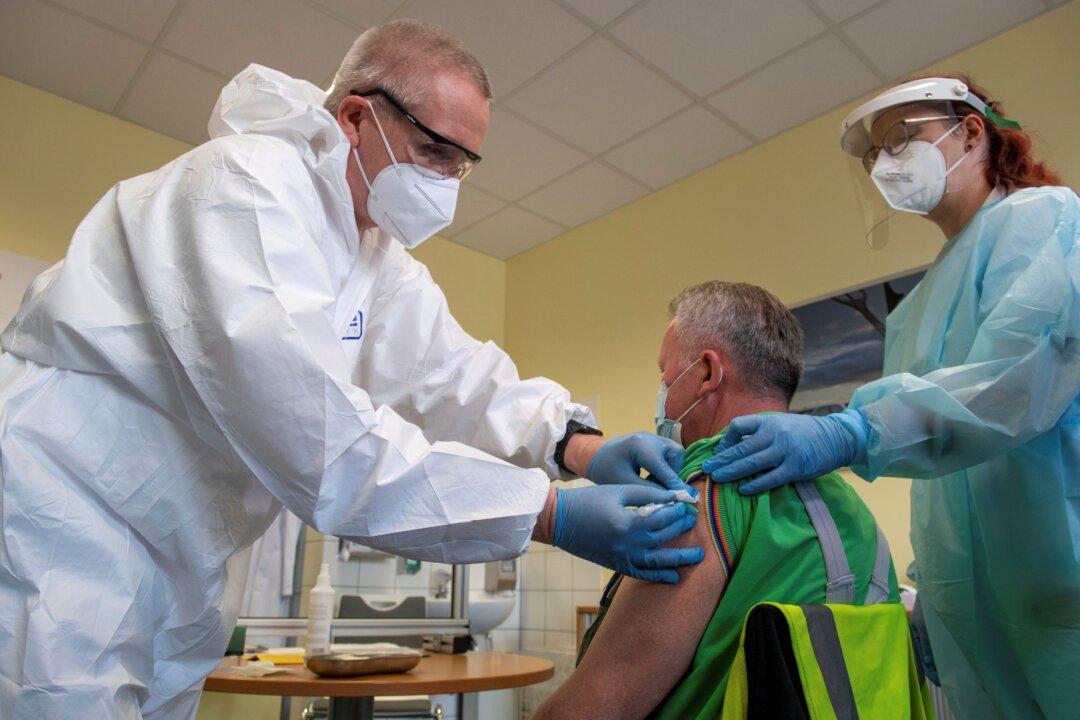The European Union’s drug regulation agency on Wednesday said there is a “possible link” between the AstraZeneca CCP virus vaccine and “very rare” blood clots but recommended that vaccinations continue and stressed the benefits outweigh the risks.
The European Medicines Agency (EMA) “is reminding healthcare professionals and people receiving the vaccine to remain aware of the possibility of very rare cases of blood clots combined with low levels of blood platelets occurring within 2 weeks of vaccination,” the agency said in a statement Wednesday.





